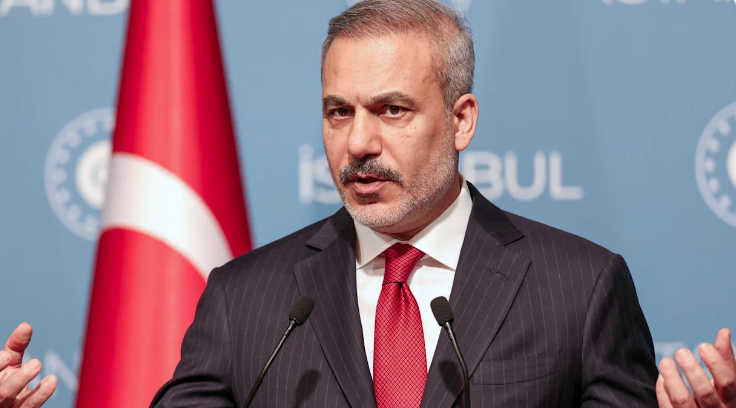A draft UN Security Council resolution proposing the establishment of an International Stabilization Force in the Gaza Strip is expected to be finalized within two weeks, according to Turkish Foreign Minister Hakan Fidan. However, progress may be delayed if consensus is not reached on key issues such as U.S. military leadership, coordination with Palestinian civil police, and the timeline for Israel’s troop withdrawal.
Turkey Hosts Talks on Muslim Troop Contributions
At a meeting held Monday in Istanbul, where the deployment of troops from Muslim-majority countries was discussed, Fidan emphasized that each nation’s participation will depend on the mission’s scope and mandate.
“The decisions of the countries will be shaped by the mission and authority of the International Stabilization Force.
If the mission conflicts with the principles and policies of the countries sending troops, participation will be difficult,”
Fidan stated.
He reaffirmed Turkey’s readiness to send troops to Gaza, a proposal rejected by Israel due to Ankara’s support for Hamas.
Regional Diplomacy and Leadership Uncertainty
The meeting brought together foreign ministers from Indonesia, Pakistan, Saudi Arabia, and Jordan, alongside representatives from the UAE and Qatar.
Notably, Egypt — seen as a potential leader of the stabilization mission — did not attend the talks.
While Jordan confirmed it will not deploy troops, it expressed willingness to train a Palestinian police force responsible for maintaining order. However, the coordination mechanism between the international troops and local police remains unclear, particularly regarding jurisdiction and operational command.
Ongoing Violence Threatens Fragile Ceasefire
Meanwhile, continued violence in Gaza has raised concerns about the fragility of the current ceasefire agreement.
On Tuesday alone, 115 people were killed and 352 wounded, marking the deadliest day since the ceasefire took effect on October 10.
German Foreign Minister Johann Wadephul urged for faster progress, warning that delays could create a dangerous security vacuum.
“We must move faster. The ceasefire is good, but we need to fill the vacuum in Gaza — both for security and governance,”
Wadephul said.
Turkey Blames Israel for Violations
In his closing remarks, Fidan accused Israel of repeatedly violating the ceasefire and blocking humanitarian aid deliveries to Gaza, calling on the international community to ensure accountability and compliance with UN resolutions.
Analysis
The proposed UN Stabilization Force represents the first major international initiative aimed at restoring order in Gaza after months of intense conflict.
However, disagreements over command structure, mandate authority, and Israel’s withdrawal timeline may delay or weaken the mission’s implementation.
Observers note that Turkey’s ambition to play a central role could also complicate diplomatic coordination, given its tense relations with Israel and close ties with Hamas.







